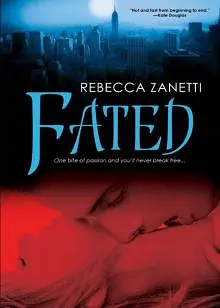McAlden followed the line of his gaze. “You can’t mean—That’s Celia Burke!” All trace of joviality disappeared from McAlden’s voice. “Jesus, Del, have you completely lost your mind? As well as all moral scruple?”
“Gone squeamish?” Del tossed back the last of his drink. “That’s not like you.”
“I know her. Everyone in Dartmouth knows her. She is Marlowe’s wife’s most particular friend. You can’t go about ruining—ruining for God’s sake—innocent young women, like her. Even I know that.”
“I said she’s not innocent.”
“Then you must’ve misjudged her. She’s not fair game, Del. Pick someone else. Someone I don’t know.” McAlden’s voice was growing thick.
“No.” Darling kept his own voice flat.
McAlden’s astonished countenance turned back to look at Miss Burke, half a room away, now smiling sweetly in conversation with another young woman. He swore colorfully under his breath. “That’s not just bloody-minded, that’s suicidal. She’s got parents, Del. Attentive parents. Take a good hard look at her mama, Lady Caroline Burke. She’s nothing less than the daughter of a Duke, and is to all accounts a complete gorgon in her own right. They say she eats fortune hunters, not to mention an assortment of libertines like you, for breakfast. And what’s more, Miss Burke is a relation of the Marquess of Widcombe, in whose ballroom you are currently not dancing. This isn’t London, you are a guest here. My guest, and therefore Marlowe’s guest. One misstep like that and they’ll have your head. Or, more likely, your ballocks. And quite rightly. Pick someone else for your challenge.”
“No.”
“Delacorte.”
“Bugger off, Hugh.”
McAlden knew him well enough to hear the implacable finality in his tone. He shook his head slowly. “God’s balls, Del. I didn’t think I’d regret having you to stay so quickly.” He ran his hand through his short, cropped hair and looked at Del with a dawning of realization. “Christ. You’d already made up your mind before you came here, hadn’t you? You came for her.”
Under such scrutiny, Del could only admit the truth. “I did.”
“Damn your eyes, Delacorte. This can only end badly.”
Del shrugged with supreme indifference. “That will suit me well enough.”
They called it blackmail, though the letter secreted in Celia Burke’s pocket was not in actuality black. It had looked innocuous enough: the same ivory-colored paper as all the other mail, brought to her on a little silver tray borne by the butler, Loring. It would have been much better if the letter had actually been black, because then Celia would have known not to open it. She would have flung it into the fire before it could poison her life irrevocably. The clenching grip of anxiety deep in her belly was proof enough the poison had already begun its insidious work.
“Celia, darling? Are you all right? Smile, my dear. Smile.” Lady Caroline Burke whispered her instructions for her daughter’s ears only, as she smiled and nodded to her many acquaintances in the ballroom as though she hadn’t a care in the world.
Celia shoved her unsteady hand into her pocket to reassure—no, not reassure—convince herself—the letter was still there. And still real. She had not dreamt up this particular walking nightmare.
She released the offensive missive and clasped her hands together tightly to stop them from trembling. She had no more than a moment or two to compose herself before the opening set was to begin.
Blackmail. The letter, dated only one day ago, was clear and precise, straight to the point.
